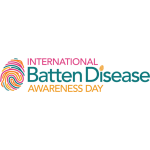International Batten Disease Awareness Day Date in the current year: June 9, 2026
 International Batten Disease Awareness Day is observed annually on June 9. The day was created to raise awareness of Batten disease, a rare and fatal neurological disorder, and to support affected families.
International Batten Disease Awareness Day is observed annually on June 9. The day was created to raise awareness of Batten disease, a rare and fatal neurological disorder, and to support affected families.Batten disease is a genetic disorder affects the nervous system and causes premature death. The term “Batten disease” may refer to the juvenile form of neuronal ceroid lipofuscinosis (NCL), or it may be used as an umbrella term for all forms of NCL. NCL belongs to a group of rare metabolic disorders called lysosomal storage diseases. In these disorders, defective enzymes that are responsible for breaking down unwanted substances cause those substances to build up in cells. NCL is characterized by the buildup of the lipopigment lipofuscin.
NCL is caused by a mutation in one of several associated genes; juvenile NCL (Batten disease) is specifically caused by a mutation in the CLN3 gene. Batten disease has an autosomal recessive pattern of inheritance, meaning a child must inherit two copies of the defective gene, one from each parent, to develop the disease. A person who carries one copy of the defective gene will not show symptoms but may pass it on to their child. Batten disease is an ultra-rare condition with a global incidence of one per 100,000 live births.
The accumulation of lipofuscin in patients with Batten disease causes progressive nervous system damage, resulting in a variety of symptoms that usually manifest between the ages of five and ten. Before symptoms appear, children with Batten disease usually develop normally and meet early developmental milestones.
Early symptoms may include subtle behavioral and personality changes, learning difficulties, clumsiness, coordination issues, vision problems, and seizures. As the disease progresses, children experience cognitive decline, sleep disturbances, and musculoskeletal problems such as muscle rigidity, weakness, spasms, and tremors. They also experience speech and language difficulties, memory loss, and vision loss.
Batten disease is a terminal illness with no cure. The life expectancy for children with Batten disease is usually between late teens and early twenties, though it can vary depending on the genetic subtype and the care provided.
Treatment focuses on managing symptoms and providing palliative care. The FDA has approved cerliponase alfa (Brineura) to treat NCL type 2 (late infantile NCL). It slows the loss of motor function, but it does not cure the disease. Researchers are currently studying gene-based therapies, enzyme replacement, and small-molecule treatments for Batten disease.
International Batten Disease Awareness Day is held annually on June 9 to raise awareness of Batten disease among healthcare professionals, scientists, lawmakers, government authorities, and the general public. The day also aims to raise funds to support the Batten community and finance research. You can get involved by learning more about Batten disease, sharing what you’ve learned with others, donating to an organization that supports patients or funds research, and spreading the word on social media.
- Category
- International Observances
- Tags
- International Batten Disease Awareness Day, international observances, awareness day, rare diseases, neurological disorders